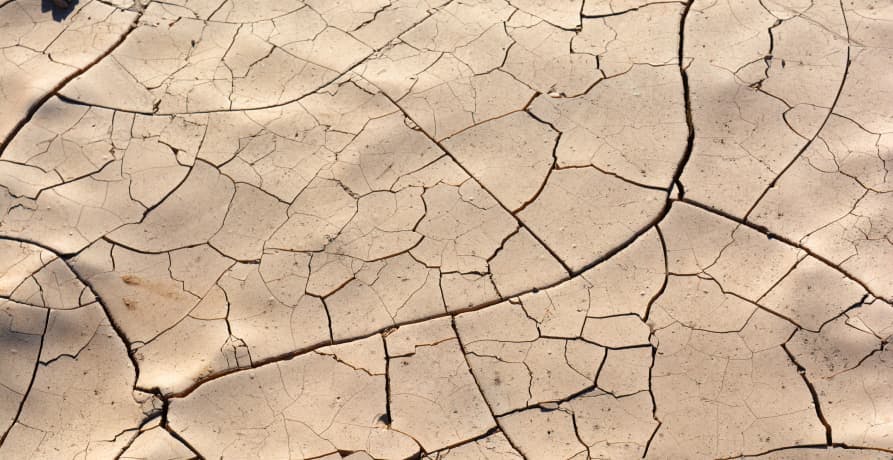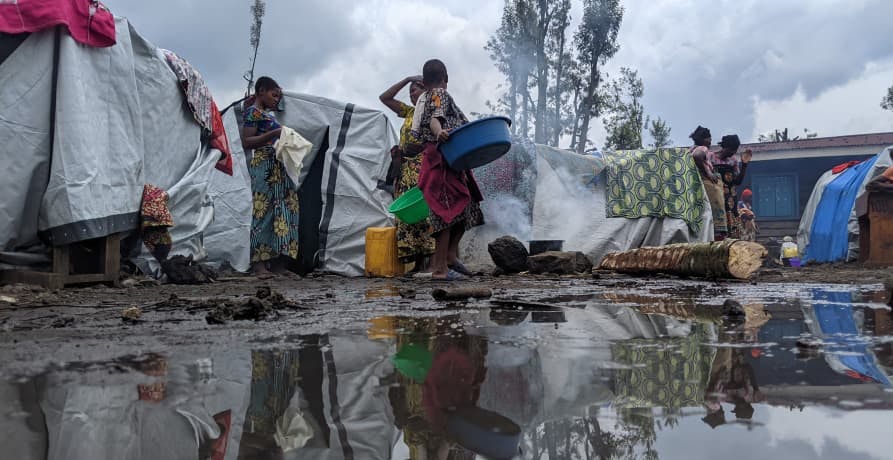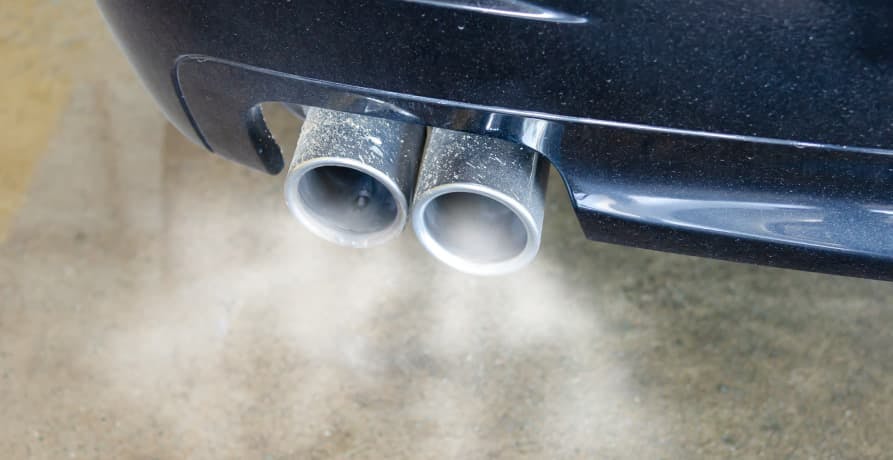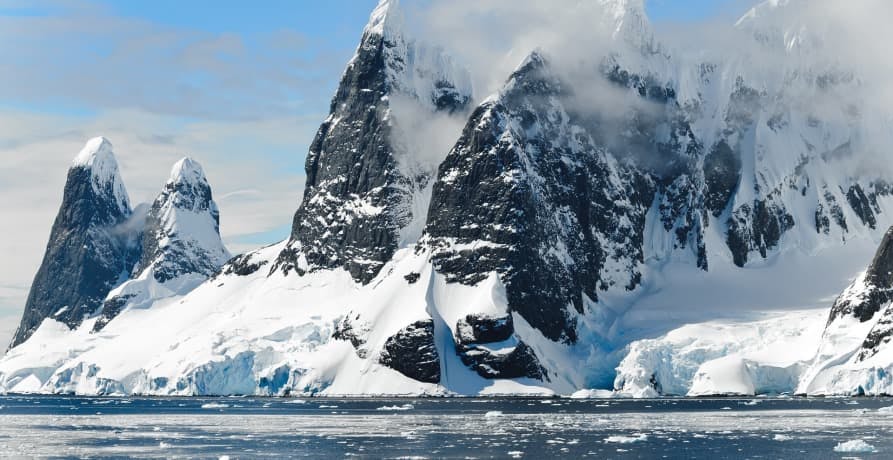ESG / CSR
Industries
Debunking 7 Common Misconceptions About Climate Change



Climate change… you’ve heard it all before. With all the talk of natural disasters here and impending doom there, it might seem like there's an air of fear-mongering, especially if it doesn’t seem dire from our perspective.
The truth is, that a complacent mindset is a big part of the problem. And time is ticking: the Intergovernmental Panel on Climate Change (IPCC) states that the next three years are pivotal in determining if we can alter the course that's steering us towards a full-blown crisis.
👉 In this article, we'll address and debunk 7 common excuses people use to dismiss global warming and examine the psychology behind it.
Climate change: 7 misconceptions
1- There are bigger fish to fry
“With the ongoing cost of living crisis, who has time to think about the environment - there are more important things to deal with!”
👋 A CBS NEWS survey from April 2022 revealed that climate change was near the bottom of the "high priority" list for Americans, trailing behind concerns like the economy, inflation, crime, Russia/Ukraine tensions, and immigration.
We completely get it - times are tough right now, and it seems like there are much more pressing issues to deal with than the environment. Sadly, however, the current global climate crisis is a huge problem - and it’s not going to go away.
Even areas that are currently only minimally impacted by climate change won’t be able to escape the effects for much longer. Climate change is not only impacting weather patterns and making extreme weather more likely, it has the potential to disrupt whole societies and bring instability and hardship to millions of people across the world.

2- But I’m not impacted
“We don’t see the difference. We live like we did twenty years ago and everything is fine - there’s no noticeable change in our lives and in our daily lives.”
It would take living in complete isolation, far from the modern world and its constant stream of information, to overlook the increasingly evident impacts of global warming being broadcasted. And let's be clear: these impacts are growing more frequent and pronounced.
👉 Climate change isn't a distant issue; it's reshaping our daily lives. Consider air quality, for instance. Its degradation is directly affecting our health. A study spanning 10 European cities found that living near major roads contributed to 15-30% of new child asthma cases.

3- Humans always adapt
“Humans have always been able to adapt to changes and challenges - climate change is no different.”
Humans are remarkably adaptive, yet even we have our boundaries.
Much like animals, humans have historically migrated when their environments became inhospitable. However, today's geopolitical landscape - with its borders and regulations - doesn't allow for simple migration based on environmental threats.
Immigration is already a heated debate in many countries across the world, so is it realistic to think that these nations will happily step up and offer refuge to those suffering from the impacts of climate change? Unlikely, which is another reason that climate change is such a threat. With increased migration and border tensions, armed conflict becomes much more likely.
👉 According to the IPCC, some 3.3 to 3.6 billion people - out of the world’s 7.8 billion people - live in countries vulnerable to climate change. No less than 220 million climate migrants are expected by 2050. And this is only the beginning.

4- Our efforts have no impact on global warming
“My efforts have no impact - I can’t save the planet all by myself! It should be up to politicians to legislate so that people are forced to make changes.”
If we all sit back, waiting for others to make the first move, we're headed down a dangerous path. The mentality of "someone else will handle it" spells doom for our collective future. Every small step matters. We have the power to change the tide, but unity is key.
And as for the idea that our governments will solve the issue - well, regrettably, our leaders often reflect public sentiment. If environmental concerns aren't at the forefront of public discourse - if we're distracted or preoccupied with other issues - there's a slim chance our policymakers will prioritize it either.
The drive for change needs to resonate from every corner - it's essential for slashing our greenhouse gas emissions (GHG). The IPCC has noted that transitioning to a low-carbon society necessitates a holistic shift in both infrastructure and societal behavior.
Of course, certain strides can only be championed by governments: like financially aiding vulnerable populations to ensure they aren't left behind in the green transition, spearheading the renewable energy revolution, and renovating infrastructure for sustainability.
But simple actions, like not tossing trash on the beach or being mindful of plastic usage, are within everyone’s capability.
Here are some accessible eco-friendly measures for individuals:
- Reevaluate your diet - cutting back on meat, which accounts for 15% of global GHG emissions, can make a big difference.
- Make conscious purchases - buy less, but choose quality.
- Embrace eco-friendly transport - opt for public transport, cycling, or walking over driving.
- Buy seasonal and local produce whenever possible.
- The list goes on...
💡 Adopting a more environmentally conscious lifestyle could empower individuals to contribute to between 25% and 27% of the necessary reductions needed to maintain a 1.5°C rise in temperature by 2030, as per the “Power of People” study.
👉 Find out why eating meat is so bad for the environment in our article.
5- The climate has always fluctuated
“The climate is always changing! It’s cyclical and it’s perfectly normal - stop worrying people for nothing.”
The climate has always changed. But current climate change is faster and more violent than the variations observed in previous centuries.
Moreover, the global warming we are experiencing is directly linked to the CO2 emissions generated by human activity since the Industrial Revolution.
The IPCC’s Sixth Report is clear on this point: “since 1970, global temperature has risen faster than over any other 50-year period over the past two millennia.”
👉 To read the key takeaways from the IPCC’s sixth report why not head over to our article.

6- One or two degrees increase doesn't sound like much
“The world’s not going to end from an increase of a degree or two in temperature!”
This mindset is gravely mistaken. Even a seemingly insignificant temperature increase carries profound, often irreversible, repercussions.
And we’re already seeing the repercussions! The United Nations Office for Disaster Risk Reduction (UNDRR) forecasts a staggering 560 natural disasters annually by 2030, up from the current rate of 350 to 500 per year.
To paint a clearer picture: a one-degree rise boosts atmospheric water vapor by 7%. The result? Amplified rainfall, leading to increased flooding and, in the long run, potential submersion of coastal regions.
Moreover, even this modest temperature hike takes a toll on our ecosystems:
- A multitude of animal and plant species risk extinction by 2100
- 99% of coral reefs stand to vanish due to escalating ocean acidification
- Vital natural resources will deteriorate in quality, with some potentially becoming scarce
👉 This is why our unwavering goal should be to cap warming at 2°C, striving for an even stricter 1.5°C, in alignment with the Paris Agreement. Head over to our article on the Paris Agreement to find out why this temperature limit is important.
7- But this winter was so cold
“Global warming!? It’s -1°C this morning, I don’t see the problem.”
It's crucial to differentiate between climate and weather. While weather predicts short-term conditions in a specific location, climate looks at long-term trends across the globe. A cold winter in one region doesn't negate the overall upward shift in global average temperatures.
In fact, as evidence of these shifts, snow is becoming rarer each year. The depth and longevity of natural snow cover are diminishing due to climate change. If we hit a +2°C increase, we might soon rely on artificial snow as the norm!

Why do we have such a hard time taking climate change seriously?
Lack of understanding
Understanding climate change is no simple feat; it's mired in technical and scientific intricacies. The depth of detail in the IPCC reports underscores this complexity. Every five years, this esteemed panel offers a thorough assessment of our planet's health, aiming to bring the urgency of global warming to the forefront.
Their findings are stark: a +1.1°C rise already under our belt and we’re headed towards a predicted increase of +2.7°C by century's end unless we take drastic action to change course. Yet, these warnings often go unanswered. The technicality of the report and the scientific nature of global warming cause many to tune out, assuming it's too convoluted to grasp. Or perhaps another reason is that it’s simply easier to ignore than it is to change our ways of living and confront the problem.
Another consideration is that the visibility of the reports remains relatively low. The release of the IPCC’s reports has often been overshadowed by global events, such as the Ukraine conflict for example.

The wiring of our brain
Despite the slew of scientific publications and the media's intermittent warning messages, many remain blind to the pressing urgency of our climate situation. The alarms are ringing, yet we continue to drag our feet.
So, why is it such a challenge to respond? The answer is more nuanced than you might think. Believe it or not, our ecological inaction may be influenced by a specific part of our brain: the striatum.
This ancient section of the brain, common to many animals, drives our most basic desires. The striatum releases dopamine, the "pleasure molecule," which originally motivated survival actions like eating or reproducing. Over time, these motivations expanded into other areas.
Yet, this dopamine-driven pleasure is fleeting, leading to regular releases that can result in addictive behaviours, a phenomenon termed “hedonic habituation”.
How does this tie into climate change? Well, essentially, our striatum constantly places us at a crossroads. We find ourselves indulging in actions that both pollute and provide dopamine-driven satisfaction, such as buying a new car to signal success or excessively consuming products from pollution-heavy industries.
But here's the twist: our cerebral cortex, our centre of reasoning, recognises the climate crisis.
👉 The tussle between our innate desires and rational thought isn't a fair one. The cerebral cortex, being a later evolutionary development, often can't overpower the pull of the striatum.
But there's hope. According to neuroscientist Dr. Sébastien Bohler, author of "Human Bug", we can shift this balance by guiding the striatum from early childhood. To safeguard our planet and reduce the overpowering grip of the striatum, we should teach our young ones to adopt more conscientious consumption habits from the outset.
We’re not concerned enough
It all boils down to our striatum. If we don't personally feel the urgency of a cause, we often won't act. That's just human nature.
The striatum craves immediate gratification, often overlooking actions that yield long-term benefits. The more abstract a threat feels the less real and concerning it appears. This mindset extends beyond just environmental issues. If a conflict seems distant, we're often detached. But if it's happening just a few hours away? Suddenly, it's on our radar.
Simply put, we're more inclined to champion ecological causes when they directly affect us. If the repercussions seem far off, either in time or location, it becomes challenging to genuinely care or see how our actions tie into the bigger picture. We hear about issues, have a fleeting emotional response, and then move on.
We’re in denial
One would assume that when faced with the reality that "our house is burning," as eloquently put by French President Jacques Chirac, we'd be spurred into immediate action. Yet, surprisingly, we often don't respond.
In the shadow of impending threats that may one day burden our children, we remain passive. It's challenging to come to terms with the idea that our actions could be setting the stage for our own demise. We're undeniably contributors to global warming, and deep down, we recognize this. However, there's a reluctance to face this unsettling truth head-on, often clinging to the hope that perhaps some technological marvel will emerge to save the day.
What about Greenly?
At Greenly we can help you to assess your company’s carbon footprint, and then give you the tools you need to cut down on emissions. Why not request a free demo with one of our experts - no obligation or commitment required.
If reading this article has inspired you to consider your company’s own carbon footprint, Greenly can help. Learn more about Greenly’s carbon management platform here.





